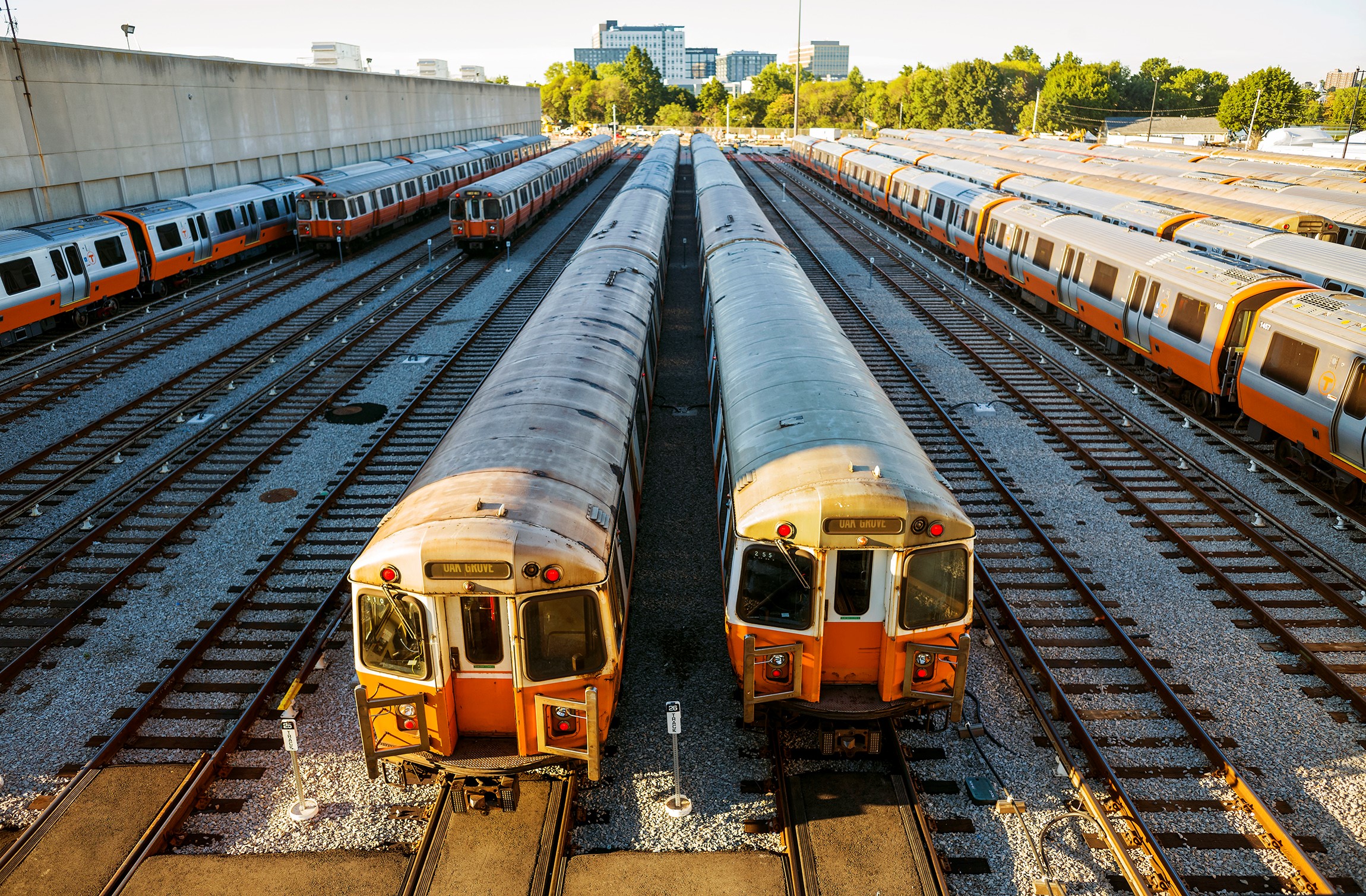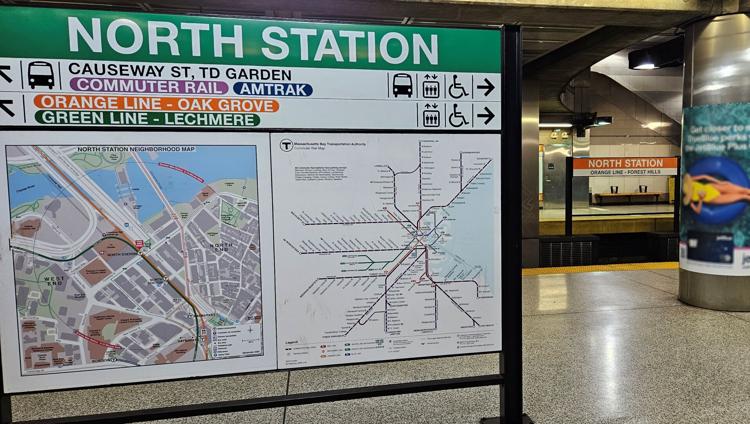
Boston, MA – March 10: A Green Line train pulls into the Park Street Station. (Photo by Craig F. Walker/The Boston Globe via Getty Images)
MBTA overseers stamped unanimous approval Tuesday on the agency's first budget to surpass $3 billion, embracing a plan that drains savings in a bid to expand the workforce and improve service.
The fiscal year 2025 plan boosts spending 11% over fiscal 2024 while anticipating a 10% growth in revenue, much of which stems from a one-time redirection of federal maintenance funds.
T officials expect the increase in outlays will continue a hiring blitz that started under Gov. Maura Healey. The budget funds more than 8,000 employee positions, about 440 more than the fiscal 2024 plan, and incorporates wage and benefit bumps covered by collective bargaining last year.
A range of experts, including federal safety watchdogs, have argued that the MBTA needs more workers to improve service that for years has been plagued by disruptions. The T is also partway through a major repair campaign that, by leaning on a string of temporary shutdowns, aims to lift all remaining slow zones by the end of the year.
But the push to staff up and run faster service grinds against a challenging financial outlook. Ridership has plateaued below pre-COVID levels, curtailing the amount of revenue the T collects from fares, while the agency also continues to pay for Big Dig-era debt.
The $3.02 billion fiscal 2025 budget would draw down a remaining $307 million in MBTA savings -- built largely from federal pandemic relief -- to close the gap this year, leaving little available to help with a fiscal 2026 shortfall MBTA staff expect to approach $700 million.
"That is an enormous gap, and we see, at this point, no clear path for covering it," Roy Epstein, a Belmont Select Board member who chairs the operating budget oversight committee at the independent MBTA Advisory Board, told T officials Tuesday. "It's going to require some concerted action at, I believe, all levels of government."
More on the MBTA budget
Epstein said some of the cost increases MBTA staff have embraced come from "genuine necessity." The added employees, he said, are "necessary for safety mandates and for maintaining operations at an acceptable level of service."
"There's no fat in this budget, so exactly how to cure it is something that I think will require the full attention of this board," Epstein said, offering to broach conversations with the Healey administration and Legislature about a path forward.
The MBTA Advisory Board, an independent organization representing cities and towns who help fund the MBTA, warned last week that riders, municipalities and others "face terrible options" if officials do not craft a plan to close the fiscal 2026 gap before next summer.
T overseers approved the budget minutes after hearing a summary of the Advisory Board's stark warning.
"Something has to change in the next 13 months, or else we're going to be looking at massive service cuts and real stagnation in our economy and our society," said MBTA Advisory Board Executive Director Brian Kane.
In addition to the one-time use of $307 million in savings, the T's fiscal 2025 budget expects receiving $314 million in contract assistance from the state, a significant increase over traditional levels. Healey, the House and Senate all moved to increase that stream through the annual state budget, though they offered different proposals for other sources of MBTA funding.
The MBTA budget also plans to steer $191 million in federal formula funds meant for preventative maintenance toward the operating budget. Last year, only $31 million from that source factored into the operating budget.
Officials plan to try and trim $93 million in spending over the course of fiscal 2025 by reducing professional services, third-party contractor costs and overtime. T Chief Financial Officer Mary Ann O'Hara said that savings would provide a small foundation for addressing the eventual fiscal 2026 gap, but is not necessary to balance the fiscal 2025 plan.
One MBTA board member, Chanda Smart, asked Tuesday about action to relieve the MBTA from some of its so-called legacy debt, which includes money the agency owes for Big Dig mitigation projects.
Kane, who estimated the T will pay more than $8 billion over the life of those debts, said reassigning it would require legislative action.
The MBTA Board on Tuesday also unanimously approved a five-year, $9.6 billion capital investment plan outlining maintenance, modernization and expansion projects for fiscal years 2025 through 2029. Officials update that plan every year, and the latest one features $843 million in new funding compared to last year.
T Chief of Policy and Strategic Planning Lynsey Heffernan said agency staff submitted more than $10 billion in requests for new capital funding this cycle, 92% of which went unfulfilled. MBTA officials also estimated last year it would cost $24.5 billion to fix all assets not in a state of good repair.
"We're treading water, barely, by just what we're doing year to year on these five-year plans," MBTA Board member Tom McGee, a former Senate chair of the Legislature's Transportation Committee, said Tuesday.
Beacon Hill deliberations about permanently reshaping MBTA funding are unlikely to begin until at least next year. Healey created a task force to review transportation funding questions, and that panel must submit a report by the end of the year.
The T already receives several hundred million dollars in contract assistance through the state budget as well as a dedicated share of the state's sales tax. MBTA officials forecast they'll get $1.465 billion next year from the sales tax.
Lawmakers might also eye the new surtax on high earners to fund any additional MBTA investments. Revenue from that source -- which has been blowing past conservative estimates used to craft the state budget -- must be earmarked only for education and transportation.



